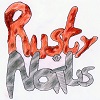|
Dubious songwriting credits to the contrary, Big Joe Williams wrote and
recorded the earliest known (1935) version of "Baby Please Don't
Go," a song that has survived virtually unchanged from the Mississippi
Delta to British hard rock. Sure, some guitarists like Angus Young and
Ted Nugent have offered slick and fancy licks over breakneck tempos in
their versions, but the song remains the same, to quote a phrase. In fact,
take a listen to Lightnin' Hopkins' solo version from 1967 if you want
impressive fretwork.
The confusion over songwriting credit can at least in some part be attributed
to the give-and-take oral folk and blues tradition. According to the web
site Earlyblues.com, Leonard Caston recorded a version between the two
by Williams, and by the second Williams take, Big Joe was incorporating
some of Caston's lyrical changes, such as the line "Make you walk
the log." It is likely that Williams adapted the song from the old
chain-gang song "Another Man Done Gone," which also inspired
or was inspired by other blues songs such as "Alabama Bound"
and "Don't Leave Me Here."
Williams was what they called a "walking" musician, a Southern
blues version of the troubadour or wandering minstrel. He would play juke
joints, work camps, dances -- anywhere that would have him. He was an
influential and innovative guitarist who played his own hot-rodded guitars
that ranged anywhere from one- to nine-string variations of the instrument.
"Baby Please Don't Go" was from his second known recording session,
in 1935, for the Victor subsidiary Bluebird. This version was cut with
a fiddle and washboard accompaniment, but it is the later 1941 recording,
now named simply "Please Don't Go," with a fuller band and more
contemporary sound, that is the version that influenced subsequent covers
of the song. Here, his verse lines are sung in a call-and-response with
John Lee, aka Sonny Boy Williamson. Williams likens the hold his woman
has on him to both being kept as a pet and shackled in prison, thus the
allusion to "Another Man Done Gone": "Baby, please don't
go/Baby, please don't go back to New Orleans/You know I love you so, baby
please don't go...Don't call my name, you got me way down here/Wearing
a ball and chain."
The most likely link between the Williams recordings and all the rock
covers that came in the 1960s and 1970s would be the Muddy Waters 1953
Chess side, which retains the same swinging phrasing as the Williams takes,
but the session musicians beef it up with a steady driving rhythm section,
electrified instruments, and Little Walter Jacobs wailing on blues harp.
John Lee Hooker also recorded "Baby Please Don't Go" for Chess
in 1952 and again for Riverside in 1959, but the song remains more closely
identified with Waters. Hooker's early version is a link in the chain
between Williams' more deliberate take and Waters' rocking recording.
Them scored a Top Ten hit in the U.K. with its famously frenetic single
(later available on Them Featuring Van Morrison (1987)) that features
sessionman Jimmy Page shredding a wicked solo that forever colored the
song, though the credit is not without controversy; Them's guitarist,
Billy Harrison, claims that he at least created -- if not recorded --
the famous riff that forms the backbone of the arrangement, and at least
one other bandmember insists that it is not Page playing the part. Alan
Henderson plays the amphetamine-rush, pulsing two-note bass line that
was later lifted by Golden Earring for "Radar Love." Ted Nugent
and the Amboy Dukes scored some success in America with Them's arrangement
in 1968. Mose Allison also recorded the song in his hip and laid-back
style in 1961 on V-8 Ford Blues.
Bill Janovitz, www.allmusic.com
|



